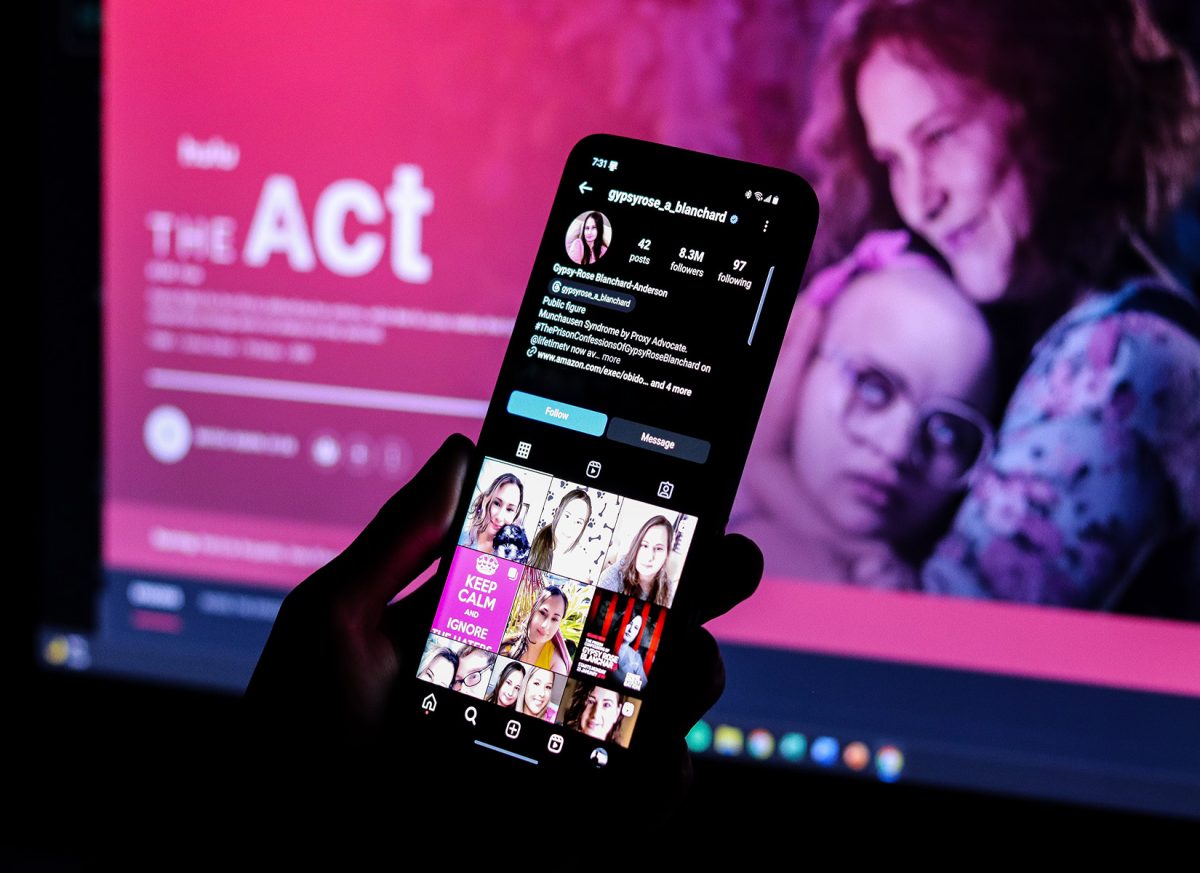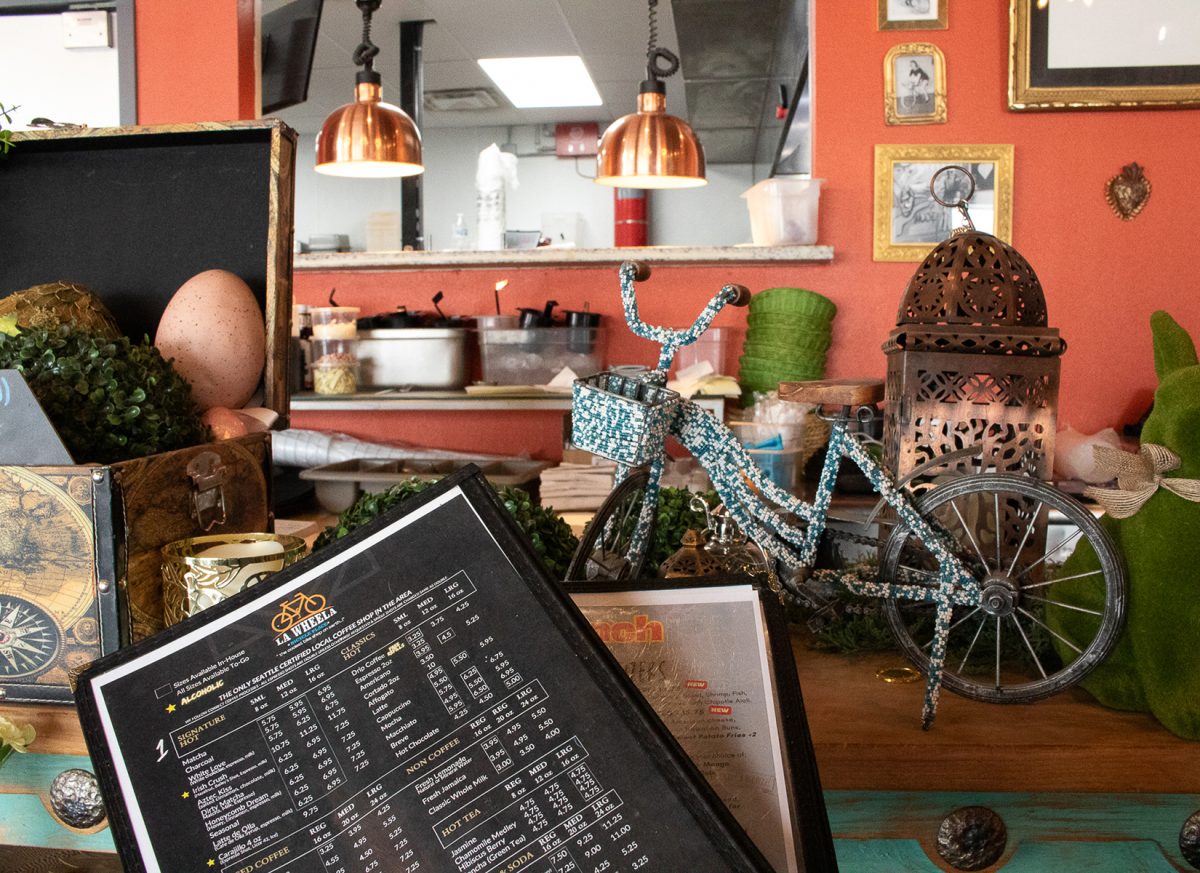After eight years in prison, Gypsy Rose Blanchard was released Dec. 28, 2023, with many awaiting to see what her life would be post-release. However, her life had already been under the spotlight years before her release.
The story of Gypsy is one that took the media by storm. It began with her growing up believing that she had several medical conditions, including leukemia and muscular dystrophy, with side effects including seizures, asthma, hearing and visual impairments. The lengthy list of medical issues caused her to require a wheelchair, feeding tube, constant doctors’ visits and endless medical procedures.
In reality, Gypsy did not suffer from any of these issues as her mother Clauddine “Dee Dee” Blanchard had lied to her as well as family, friends, and doctors about Gypsy’s medical history and even her age. Dee Dee may have suffered from Munchausen syndrome by proxy which MedlinePlus.gov defines as, “a mental illness and a form of child abuse. The caretaker of a child, most often a mother, either makes up fake symptoms or causes real symptoms to make it look like the child is sick.”
To keep up the lie, Dee Dee instructed Gypsy to never speak up during doctors’ appointments and Gypsy had to keep using her medical equipment, even though it was not needed. If people became suspicious over Gypsy’s condition, Dee Dee would pack up and move away. This was alleviated when Dee Dee claimed that she and Gypsy were Hurricane Katrina survivors and got assistance to relocate to Missouri.
In 2015, Gypsy met Nicholas Godejohn through an online dating site and confided in him about her mom’s abuse which led to her asking Godejohn to kill Dee Dee. Godejohn came to the Blanchard’s home June 9, 2015, and killed Dee Dee while Gypsy waited in another room. Afterwards they ran away together to Godejohn’s home in Wisconsin where they were later found and arrested. Gypsy was found guilty to second degree murder with a ten-year sentence, getting out in eight years due to good behavior. Godejohn was found guilty of first-degree murder with a life sentence and twenty-five years for armed criminal action.
Her story has resulted in many true crime creators making content sharing her story. As her story got more attention, several documentaries were released and eventually a Hulu show called, “The Act.” This media was able to spread Gypsy’s story and garner her sympathy from the public. It also sensationalized her story, so when her release day was announced, she already had a group of supporters waiting to cheer her on.
Supporting Gypsy became a trend for the first couple of weeks after her release. The public’s support for her was positive with her gaining millions of followers on her social media. Many online users praised her for being able to overcome her childhood trauma and her time in prison and were interested in learning about her, her husband and her family.
The positive attention did not last long though as many began judging her social media presence due to “inappropriate” comments on her husband’s Instagram page and “cringey” videos.
UTEP students and El Pasoans shared their thoughts on Gypsy and the spotlight she has been under now that she is free and the expectations of her.
“I think she got support because she did survive her mom’s abuse,” said El Paso local Kaelyn Olivera. “The expectations have for sure changed people’s public opinion. I think they became negative because people didn’t like how she acted more like a normal person than a whole celebrity.”
Many acknowledged Gypsy’s trauma that led to the initial support but agreed that she should not be idolized due to her actions.
“I don’t think she should be receiving support because after all, what she did was wrong and not something that (we) should be giving her clout or influencer (or) celebrity status (for),” said UTEP student Emilia Clinch. “I don’t think she is proud of what she did, she just wants to live her life and that’s okay. If I were in her position I wouldn’t be going on social media, I would just focus on continuing with my life.”
UTEP student Cali Gasca shared her thoughts on why Gypsy is now receiving more criticism than support and how it may go back to how the media sensationalized her story.
“She got so much positivity because she was finally freed after many thought she didn’t deserve to be in jail, but people started becoming very negative because they started to realize that yes, her mother treated her very wrong, but she did plan a murder,” Gasca said. “People are starting to not take the situation lightly like many documentaries and media have.”
Between the support and criticism, there may be a positive side to Gypsy’s story, as it is now known as the most prominent case of Munchausen syndrome by proxy.
In an interview with ABC News, Gypsy expressed that she wants to use her platform to spread awareness to this mental illness and its victims and prevent others from following in her footsteps.
“I share my story to be a cautionary tale,” Gypsy said. “So that the next person that might be in a situation like mine where they are in an abusive relationship or they are feeling trapped, they don’t take the route that I did.”
Ximena Cordero is a staff reporter and may be reached at [email protected]













